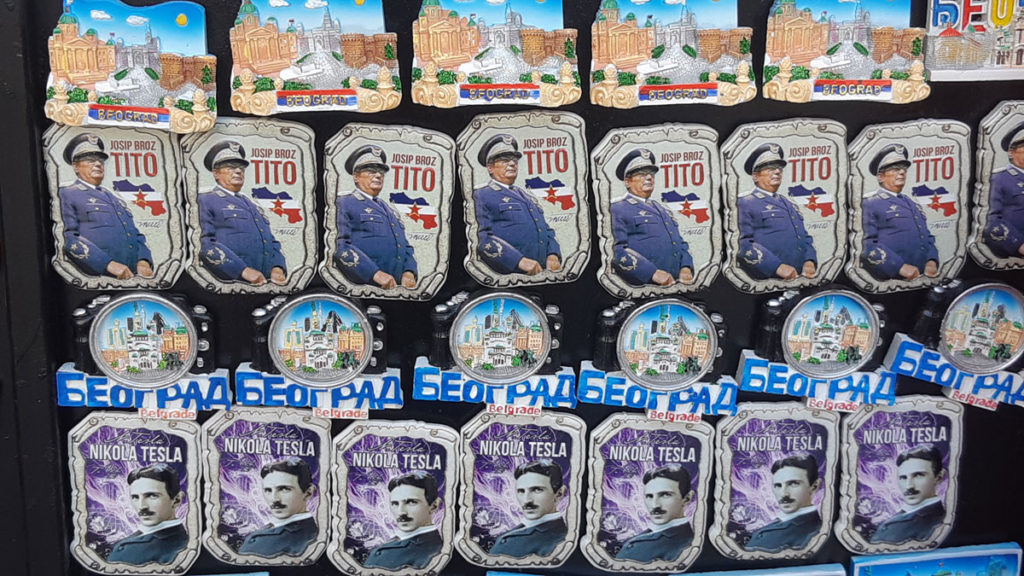
A fantastic tragicomedy could be written around the fact that the citizens of Croatia have chosen Nikola Tesla as one of the figures who will be featured on Croatian euro banknotes. Unquestionably, this case clearly shows that anything is possible in the bizarre back-and-forth between Croatian and Serbian nationalists, but, more importantly, it also shows that they actually agree on everything. In this particular case, both are dissatisfied with the fact that Tesla will be depicted on the euro banknotes.
There is a long history of petty bickering between local nationalists about ownership over Tesla, similar to the debate waged over Andric, and even Dubrovnik and its literature. The reason for all this is clearly global recognition, which makes the discussion even more meaningless. Because Tesla, Andric and Dubrovnik are, and can only be, global, they belong to the whole world. Everything else is peripheral and serves only as more proof of the autism of these societies. Because, if they were not passionately loyal to nationalist autism, normal societies would be happy to have someone they consider their own a symbol of both neighboring states and all of humanity. As nationalism is banal, however, its reactions can only be stupid. I would be very interested to hear what the people from the National Bank of Serbia meant by ‘activities’ that they announced they would take regarding this? What exactly will they do, what are the arguments for this, and who even cares about this? In essence, nationalist mantras are nothing but nonsense, and it is all the more incredible how many people believe them.
It is a well-known fact that Tesla was a Serb from Croatia, so even without the sentence that is mythologically attributed to him, about his pride of his Serbian origin and Croatian homeland, he is inseparable from both of these two countries. Whether you like it or not, even in spite of those who worked hard to separate them, often with dynamite. It is also obvious that exclusivist appropriation from both countries, apart from having a true ideological conviction in the case of Serbia, is motivated by the need for marketing. Which is legitimate, but also repulsive.
However, two things in the whole story still remain unsaid. The first is the one I mentioned in the introduction about the mutual understanding of nationalists. It is not Croatian nationalists who claim ownership over Tesla. Moreover, they are the ones who removed his monument from the center of Gospic, and returned it only 30 years later, after many hassles and to a less prominent location. In short, their relationship to Nikola Tesla is the same as their relationship to anti-fascism and partisan tradition. For them, it is something uncomfortable that they would like to erase if it weren’t impossible to do so in the long run, but, at the same time, convenient to advertise around the world and falsify social reality. After all, one of the emblematic Croatian nationalists, Robert Pauletic, viciously remarked that it was strange that Milorad Pupovac was not chosen to be on the banknote, along with Tesla. Therefore, the people from the National Bank are not fighting against Croatian nationalists, but against normal people, who chose the option which irritates the nationalists the most, while, at the same time, throwing Dubrovnik out of the game. If one were trying to be mean, one could also say that selection of Dubrovnik would also qualify as appropriation of something that does not belong to Croatia. But let’s go back to Tesla. People did not vote for him to conceal Tesla’s Serbian origin, but, in addition to the fact that he undoubtedly deserves it, they voted for him precisely because he was a Serb, as a message that these people are equal citizens of Croatia. Which brings us to another unspoken thing – the attitude of Serbia towards Serbs from Croatia. It is hidden in the answer to the question whether the problem is that parts of Croatia weren’t annexed to Serbia, or that Serbs in Croatia have become second-class citizens? If the problem is the latter, and for well-meaning and reasonable people this is the only part that should be an issue, then the fact that Tesla, as a Serb from Croatia, made it onto the banknote would be at least a small step towards correcting this injustice. Regardless of anything else. And that fact should be welcomed by all institutions in Serbia.
Translated by Marijana Simic
Peščanik.net, 31.07.2021.


